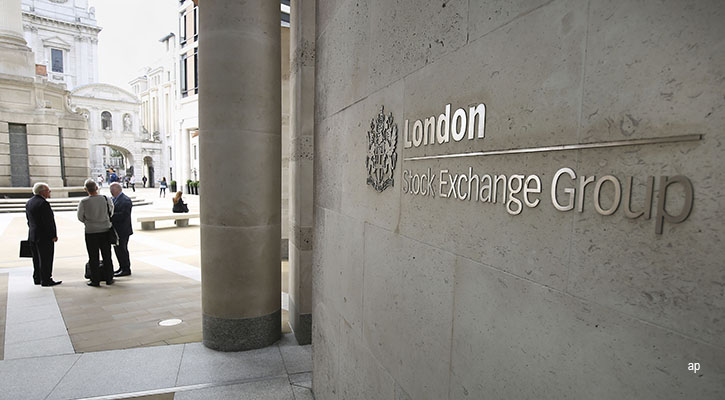Prominent fixed-income portfolio manager Bill Gross recently gave some CEF investors an early holiday present. Over the last 10 days, Gross invested $17 million of his own money into 10 of PIMCO's bond closed-end funds. The media, highlighting these investments, try to suggest that the purchases underscore Gross' positive outlook on the fixed-income market in general and the municipal bond market, in particular. Not surprisingly, coattail-following investors have been snapping up shares of these 10 CEFs, pushing up market prices.
We contend that only one group has benefitted from Gross' purchases. Investors who held shares before Gross' purchases were made public and had plans to sell the funds in the near term have been the happy recipients of this gift. These investors can take advantage of the hype and sell their shares to the giddy hordes. All thanks to the power of Bill Gross.
Secret Santa
Contrary to what has been published elsewhere, Gross' purchases do not necessarily prove that he is now somehow extra bullish on the fixed-income market. While it's true that Gross owns more shares in PIMCO's CEFs than most CEF managers own in their funds, it's easy to forget that Gross has a net worth that exceeds most fund managers'. According to Forbes magazine, Gross' net worth recently topped $2 billion. His $17 million in purchases accounted for a mere 0.85% of his net worth. This is not very much capital for someone who is proclaiming a positive outlook on municipal bonds.
Don't get us wrong. We believe that fund manager-share ownership is a key indicator of subsequent investment performance, as our own studies with open-end funds have shown. But we do not believe that too much should be read into the recent purchases.
There's another plausible explanation for Gross' recent purchases. As shares of fixed-income CEFs sold off at the end of November, he may have seen an opportunity to profit from the relatively depressed prices of the CEFs. With most of the purchases coming in below the three-year average discount, he quite simply got a good deal. As shown in the table below, Gross bought most of his shares on clearance.

Investor Behaviour in Closed-End Funds
The fascinating aspect of Gross' purchases--and this isn't the first time he's purchased shares of PIMCO's CEFs--is to watch what happens to the subsequent share prices after the news of such purchases breaks. Investors, in the loosest sense of the word, see that the Bond King has bought a security that they, too, can invest in. And they start buying the same funds, seemingly regardless of valuation. In other words, Gross' seeming endorsement of a fund is all some people need to make their purchase decision.
There's nothing necessarily wrong with this. People do it with Berkshire Hathaway purchases all of the time. Academic papers have shown that when quarterly filings reveal a new or an increased position in Berkshire's investment portfolio, that security subsequently outperforms the market in the near term. Demand for shares because of people piggybacking off of Berkshire's decision outweighs normal market supply of those shares.
A similar phenomenon seems to occur when Gross buys CEFs. For instance, take a look at PIMCO Municipal Income III. Gross purchased shares on December 8 at a 4.1% premium. On December 14, when the media started to highlight his CEF purchases, shares changed hands at 5 times the three-month daily-trading volume average. Such demand (and yes, we realise that for every buyer there is a seller) boosted the share price, which opened December 8 at $9.72 per share and closed last Thursday (December 16) at $10.60 per share. More relevant is the move in the premium. While Gross' initial purchase was made at a 4.1% premium, the shares closed Thursday at an 18.1% premium.
As a bystander, I find this fascinating. While the Bond King put his money to work at a 4.1% premium, coattail riders are willing to pay over 4 times his premium just for the privilege of investing alongside him. Their returns won't equal his because they bought in at higher prices. Their investor experiences won't be the same. And yet people are willing to pay more than twice the three-year average premium seemingly for no other reason than that they can now crow about being in the same funds as Gross. They go to sleep at night, under the wrong impression that their CEF investment is secure, despite the fact that they overpaid for a fund and bought in well after the Bond King finished his recent round of purchases.
Here's another quick example. Gross bought shares of PIMCO California Municipal Income at a 3.5% discount on December 8. A week later, these shares are trading at a 9.8% premium. Whereas he purchased the shares at a discount, current buyers are paying up for the privilege, and don't seem to care.
Conclusion
We applaud Gross for putting his money to work alongside investors in PIMCO's CEFs. We think it says a lot about a manager's conviction in a fund's strategy, as well as how he views his fiduciary duty to his shareholders. However, we caution investors not to read too much into what this portends for these funds' future performances. And we urge restraint when considering buying these funds at such premiums. Gross didn't become the Bond King by making stupid investment decisions. Follow his example and purchase CEFs when they are trading at discounts--or at least when they are trading below their long-term average premiums.
The winners are those who wanted to make a quick trade and jumped onboard right as the news broke, as well as long-term investors in these funds who were planning to sell the funds anyway.
The near-term losers here are the investors who jumped aboard the train too late. They are sure to experience a holiday hangover as publicity wanes and premiums return to more appropriate levels. Gross was able to identify and capitalised on a profitable opportunity. Unfortunately for investors, this profitable opportunity vanished as quickly as Frosty the Snowman on a warm winter day.











.jpg)










